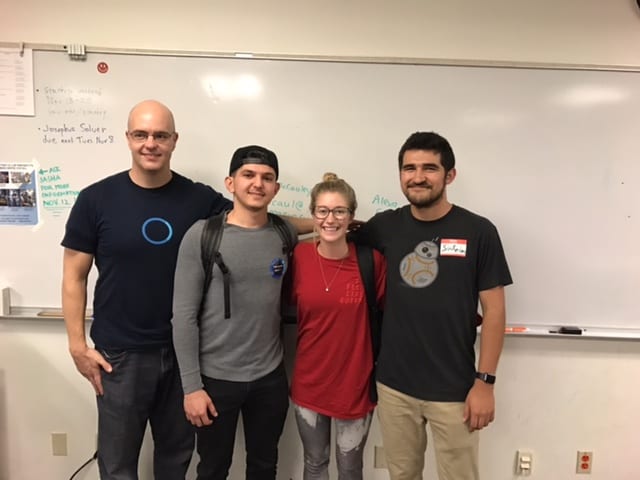
The Loyola Marymount University chapter of the Association for Computing Machinery (ACM) recently hosted the university’s first hackathon, sponsored by Amazon. Teams worked for four hours designing and programming projects based on Alexa—Amazon’s virtual assistant similar to Apple’s Siri and Microsoft’s Cortana. Teams presented their projects to a panel that judged the projects based on usability.
“For computer science majors, hackathons are the main way to really gauge what students can do,” said Justin Sanny, a senior computer science major and president of ACM who organized the hackathon. “It not only allows companies to see new, fresh ideas but it also lets them see if there’s a potential employee they’d like to hire.”
Lauren Konchan, a senior computer science major and a member of the winning team, found the event appealing because it was a way to put into practice the knowledge that she had gained at LMU.

“As one of only a few women majoring in computer science, it’s hard not to feel an extra sense of pressure. When it came to putting my skills to the test, I am impressed with how much I really know. Hackathons are a great way to realize those capabilities,” said Konchan.
Sanny believes that putting students’ skills to the test is only one draw of hackathons.
“Hackathons make you work in a team, sometimes even a team of strangers,” Sanny said, “I had to put some teams together who had never met each other before, and frankly the teams who hadn’t met before performed wonderfully.”
Konchan, along with team members Senior Irakli Khizanishvil, Senior Edward Seim and Freshman Serena Zafiris, created a hands-free Alexa extension for the messaging system Slack. While Konchan, Khizanishvil, and Seim came into the competition prepared to work with each other, Zafiris was randomly partnered with them at the event. As members of the winning team, they each received an Amazon Tap.
In addition to being a resume builder, Sanny believes that hackathons give students insight into what they might want to do in the future.
“In computer science, we were taught how to code, but a lot of us probably never had to try it in a real environment,” said Sanny. “Hackathons give students a look into what they really want to do with their life.”
Sanny hopes to organize another hackathon next semester. The university has already been contacted by other companies—such as Esri, a company that supplies geographic information systems—interested in doing something similar.



